As India’s national elections reach the finishing line, it is an opportune time to repair relations with the U.S. that were strained by the arrest of Indian diplomat Devyani Khobragade in New York in December. But there’s a big catch: Washington’s uneasy relationship with the man expected to become India’s next prime minister. Should the BJP win, Narendra Modi, a once-highly polarizing figure, will certainly become Prime Minister of one of the world’s biggest economies.
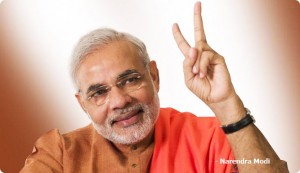 But it is not the future, but Modi’s past that presents a challenge for the United States. Hindu nationalist leader Narendra Modi was denied a U.S. visa in 2005 for alleged complicity in religious riots in 2002 that killed more than 1,000 Muslims. Exit polls display Bharatiya Janata Party and its allies with an unbeatable lead over the ruling Congress party and its allies after voting ended Monday thus reducing the final results to a mere formality. Once Modi takes the oath, the visa issue will no longer exist and U.S. will have to welcome Modi with open arms as there is too much at stake when it comes to the relationship between the two countries and such trivial issues will have to be done away with for the greater good.
But it is not the future, but Modi’s past that presents a challenge for the United States. Hindu nationalist leader Narendra Modi was denied a U.S. visa in 2005 for alleged complicity in religious riots in 2002 that killed more than 1,000 Muslims. Exit polls display Bharatiya Janata Party and its allies with an unbeatable lead over the ruling Congress party and its allies after voting ended Monday thus reducing the final results to a mere formality. Once Modi takes the oath, the visa issue will no longer exist and U.S. will have to welcome Modi with open arms as there is too much at stake when it comes to the relationship between the two countries and such trivial issues will have to be done away with for the greater good.
It was in the month of February, when, for the first time in Modi’s decade-long tenure as the Chief Minister of Gujarat that the U.S. ambassador visited him. U.S. since then has gone on record and has always said that whoever is elected India’s next leader would be welcome to the U.S., leaving little doubt that if Modi becomes Prime Minister, he could visit Washington whenever he wishes to.
On Monday, U.S. President Barack Obama congratulated India on its national election and said the U.S. will work closely with India’s next government.”We look forward to working with the leaders chosen by the Indian people to advance this important partnership and to set an ambitious agenda,” State Department spokeswoman Jen Psaki said.
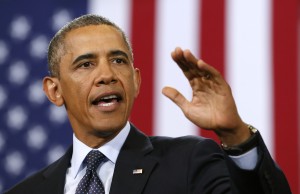 This very clearly means U.S. will accept whoever the citizens of India give their mandate to. But the U.S. will not be wrong if they think that Modi may hold a grudge against them for the visa denial, which may put a spanner when it comes to bilateral ties.
This very clearly means U.S. will accept whoever the citizens of India give their mandate to. But the U.S. will not be wrong if they think that Modi may hold a grudge against them for the visa denial, which may put a spanner when it comes to bilateral ties.
But Modi has always said that the BJP will look forward to further strengthen the partnership between India and the U.S. and build on the foundations laid by Atal Behari Vajpayee (Former India Prime Minister and BJP Leader) years back, although not much has been mentioned about it during his campaign. On the other hand, the successor to Powell, who is resigning, could play an important role in trying to build a strong bond with the new Prime Minister.
“Obama has yet to nominate a replacement, but India will look for someone close to the White House”, said Sanjay Puri, chairman of the U.S.-India Political Action Committee, which has helped organize trips by senior BJP officials to the U.S. He’s also urging an early White House invitation for the next Indian leader. “This relationship needs some love right now,” Puri said.
Category Archives: India-US Relations Blog
Statement by President Obama on the Conclusion of Indian Elections
THE WHITE HOUSE
Office of the Press Secretary
FOR IMMEDIATE RELEASE
May 12, 2014
Statement by the President on the Conclusion of Indian Elections
I congratulate the people of India on concluding their national elections today. India has set an example for the world in holding the largest democratic election in history, a vibrant demonstration of our shared values of diversity and freedom.
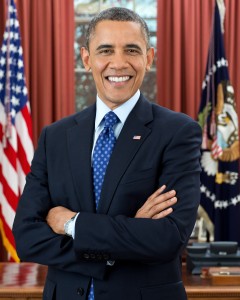 The United States and India have developed a strong friendship and comprehensive partnership over the last two decades, which has made our citizens safer and more prosperous and which has enhanced our ability to work together to solve global challenges. We look forward to the formation of a new government once election results are announced and to working closely with India’s next administration to make the coming years equally trans-formative.
The United States and India have developed a strong friendship and comprehensive partnership over the last two decades, which has made our citizens safer and more prosperous and which has enhanced our ability to work together to solve global challenges. We look forward to the formation of a new government once election results are announced and to working closely with India’s next administration to make the coming years equally trans-formative.
USINPAC congratulates Indian American Indira Talwani on being confirmed as federal judge in Massachusetts
Indian-American Indira Talwani has been confirmed by the US Senate as a federal judge in Massachusetts, making her the first Asian Pacific American federal judge in this state.
Talwani, in her 50s, was confirmed by the Senate by 94-0 votes.
 She is the first person of Asian descent to serve a judge in Massachusetts and in the First Circuit, which includes Maine, Massachusetts, New Hampshire, Puerto Rico and Rhode Island. Talwani is also only the second female judge of South Asian descent nationwide.
She is the first person of Asian descent to serve a judge in Massachusetts and in the First Circuit, which includes Maine, Massachusetts, New Hampshire, Puerto Rico and Rhode Island. Talwani is also only the second female judge of South Asian descent nationwide.
“Indi is a committed attorney with an exceptional record. She is admired by her peers. We are extremely excited that another deserving South Asian has been nominated to the judiciary,” Nadeem Bezar, president of the South Asian Bar Association North America, said in a statement.
Daughter of immigrants from India and Germany, Talwani graduated with honors from Harvard University and was later named Order of the Coif at Boalt Hall School of Law at the University of California Berkeley.
Talwani is a partner at Segal Roitman LLP in Boston, where she focuses her practice on civil litigation at the state and federal trial court and appellate levels.
“Ms. Talwani has an impressive track record as a litigator, having represented clients in matters before the Massachusetts state trial courts and appeals courts as well as the district court to which she’s been nominated, the federal courts of appeals and the United States Supreme Court,” Senator Elizabeth Warren said as she introduced Talwani during her Senate confirmation hearing.
The Senator said Talwani has broad credentials and wide litigation experience. She has developed particular expertise in legal issues that relate to employment.
“She is the associate editor of a treatise on the Family and Medical Leave Act compiled by the American Bar Association,” the lawmaker said.
Prior to joining Segal Roitman LLP in 1999, Talwani was a partner at the San Francisco law firm now known as Altshuler Berzon LLP from 1996 to 1999 and an associate at that firm fr ..
Source: The Economic Times
PHILLIPS: Geopolitical conundrum: Will the Obama regime continue to support our enemies?
If there is one constant, it is that Barack Obama will cheer for the enemy. He will support those who hate and oppose America.
One of the hottest spots in the world is the India- Pakistan area. India and Pakistan, to put it charitably, are longtime rivals. Less charitably, they might be called sworn enemies. Probably, the presence of nuclear weapons on both sides has prevented an all-out war between the two nations for several decades now.
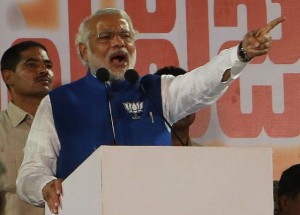 Elections are coming in India and how the Obama regime reacts to those elections will determine the future of American relations in that part of the world for years and maybe decades.
Elections are coming in India and how the Obama regime reacts to those elections will determine the future of American relations in that part of the world for years and maybe decades.
Narendra Modi is the head of the BJP Party in India. It is the right of center party and his party is expected to win the upcoming elections and he will become the next Prime Minister of India.
Mr. Modi is described as a controversial figure both inside India and outside of it.
In 2002, Muslims were accused of setting fire to a train that carried Hindu religious pilgrims. This set off weeks of interreligious war between Hindus and Muslims. Mr. Modi was accused of either being a part of the violence or at least condoning it. A court cleared him of that charge.
Unfortunately, in 2005, the United States denied Mr. Modi a diplomatic visa to enter the United States and revoked his pervious non-diplomatic visa, because of allegations related to the 2002 violence.
What will the Obama regime do if Mr. Modi becomes Prime Minister?
The Obama regime is still trying to recover from its bungling of the arrest and strip search of Indian diplomat Devyani Khobragade. Ms. Khobragade did not have traditional diplomatic immunity, but a lesser grade of immunity.
Instead of simply expelling her, the regime managed to handle the matter in such a manner that Indians were outraged.
Eventually, the regime gave Ms. Khobragade diplomatic immunity and that allowed her to leave the country.
What will happen when Mr. Modi becomes Prime Minister and wants to visit America? The State Department will either have to grant a diplomatic visa or deny it.
Barack Obama has blatantly favored Islamic nations over even America’s closest allies since he became president. Pakistan is not America’s friend. It harbored Osama bin Laden for years. The Taliban in Afghanistan is essentially a creation of the ISI, the Pakistani Intelligence service. The Pakistanis have routinely cut off over land transportation routes to Afghanistan, making it difficult for us to supply our troops there. Pakistan allows safe refuge for terrorists who hit our troops in Afghanistan, then crawl back across the border.
And Pakistan has refused to allow American experts access to Dr. A.Q. Khan. Khan, who helped create Pakistan’s nuclear weapons program, is suspected of sharing nuclear technology with North Korea, Iran and Libya.
Source: The Washington Times
The Road to Effective Governance is still a Distant Dream!
The ones who framed India’s Constitution adopted the system of democracy, with a government “of the people, by the people, for the people” which they believed would ensure for them equality and safety. Elections form an integral part of a democracy and they have been held roughly every five years in the States and at the Center, and the Election Commission has more or less fulfilled its roles commendably.
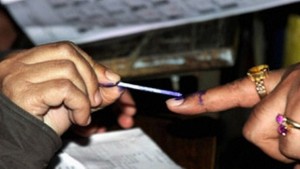 Since the start of elections, our politicians have been signaling issues of caste, community, religion, language and region to get one up against their opponents. Fifty years ago, the seeds of divide first took shape when based on the language criteria Andhra Pradesh was formed by removing eight Telugu-speaking districts from the Madras Presidency. Subsequently, smaller states such as Uttarakhand and Jharkhand were formed, and as we all know Andhra is set to witness a further divide and Telangana is about to be formed. Persistent demands for the formation of Gorkhaland, Bodoland and Vidarbha have been going on for quite some time now. But the basic claim that small states can provide good governance is questionable.
Since the start of elections, our politicians have been signaling issues of caste, community, religion, language and region to get one up against their opponents. Fifty years ago, the seeds of divide first took shape when based on the language criteria Andhra Pradesh was formed by removing eight Telugu-speaking districts from the Madras Presidency. Subsequently, smaller states such as Uttarakhand and Jharkhand were formed, and as we all know Andhra is set to witness a further divide and Telangana is about to be formed. Persistent demands for the formation of Gorkhaland, Bodoland and Vidarbha have been going on for quite some time now. But the basic claim that small states can provide good governance is questionable.
Based on different parameters, whether it be educational, job and other entitlements have been granted to scheduled caste and scheduled tribe populations, OBCs and minorities. It would not be wrong to say they are a privileged lot. Muslims, who total about 170 million, are considered a minority and are eligible for concessions, which among others include a particular financial assistance to undertake a pilgrimage to Mecca. Christians receive pilgrimage assistance (in Tamil Nadu). Jains are the latest ones to join the minority list, and get OBC quota. Jats are given concessions by one State; several other communities are demanding similar status and concessions. Since the Constitution has declared all Indian citizens as equal, why cannot the eligibility criteria for financial assistance, reservation and so on be based on levels of poverty? The only exception if there has to be one perhaps should apply to the tribal community.
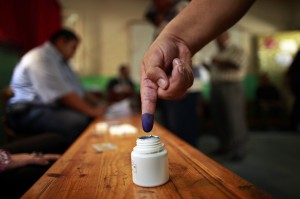 Ahead of the elections, certain groups are demanding humungous concessions and baffling favors based on caste, community and so on. That’s not all as some political parties seem to identify candidates for elections based on similar lines. Nobody asks: “Are we not Indians?” Born in one country, are we not Indians? Yes, but does the voter populations feel and act primarily as being ‘Indian First’, or do they act as members of a certain caste, religion, community or language? Before casting their vote, does he or she assess candidates with regard to integrity, social welfare consciousness, ability to express their views etc? There is scope to exercise this right, and the Election Commission has given the voter the option of NOTA, or ‘none of the above’.
Ahead of the elections, certain groups are demanding humungous concessions and baffling favors based on caste, community and so on. That’s not all as some political parties seem to identify candidates for elections based on similar lines. Nobody asks: “Are we not Indians?” Born in one country, are we not Indians? Yes, but does the voter populations feel and act primarily as being ‘Indian First’, or do they act as members of a certain caste, religion, community or language? Before casting their vote, does he or she assess candidates with regard to integrity, social welfare consciousness, ability to express their views etc? There is scope to exercise this right, and the Election Commission has given the voter the option of NOTA, or ‘none of the above’.
In a general election, votes are divided among candidates in a certain ratio. In some situations, the gap between the top two is not very substantial. When compared to the total number of votes polled, the top-scorer barely scores 30 per cent and still manages to win. How can such a person claim to represent all voters? Hence the voter gets the Parliament and government he deserves. The performance of Parliament has steadily deteriorated over the years. Several of the elected members face criminal charges and many have a record of poor attendance in the house.
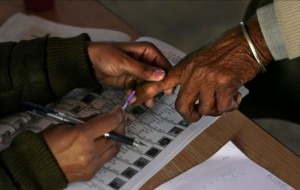 We all know that no party will get a majority. Hence, to form a government, the BJP — if it wins more seats than the Congress — will have to get support from regional parties. If the BJP forms an alliance and is able to form a government, it cannot be free from pulls and pressures. Effective governance will remain a pipe dream then. Will not the nation suffer because of this?
We all know that no party will get a majority. Hence, to form a government, the BJP — if it wins more seats than the Congress — will have to get support from regional parties. If the BJP forms an alliance and is able to form a government, it cannot be free from pulls and pressures. Effective governance will remain a pipe dream then. Will not the nation suffer because of this?
For once taking into account the interest of the nation and the need for effective governance by a stable government, why can’t leaders of the two major national parties, the Congress and the BJP, forgo ego, end slogan-shouting, and at least try to come to an ethical understanding? A committee consisting of, say, three from each party can meet and discuss the issue. If the BJP gets the larger share of seats but not the majority, the committee can then decide that the BJP would form the Central government and the Congress would support it, subject to all major policies and matters requiring legislation should be discussed by the committee. If there is no agreement on this, then the subject should be placed before Parliament and debated. Only if the vote is in favor, the government should go ahead. The Congress can express its objections during voting, but it will continue to support the government come what may.
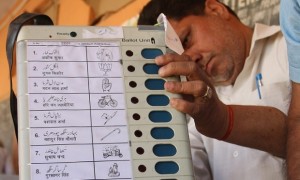 Such a system will help enable the Central government to implement measures which will improve security, the economic situation and so on, and will act as an eye-opener to all democratic countries. The credit for success will not be attributed to the BJP alone but also to the Congress. Both parties strongly believe in the welfare of the nation and therefore senior members of both parties can be expected to ensure that there is no rupture in their understanding or in the functioning of the government.
Such a system will help enable the Central government to implement measures which will improve security, the economic situation and so on, and will act as an eye-opener to all democratic countries. The credit for success will not be attributed to the BJP alone but also to the Congress. Both parties strongly believe in the welfare of the nation and therefore senior members of both parties can be expected to ensure that there is no rupture in their understanding or in the functioning of the government.
Such an arrangement should not be limited only to the government which is set to be formed after the 2014 elections. When the elections are held again after five years and if neither party gets a majority then it should be agreed upon that the Congress would form the government with the BJP supporting it and conducting itself as the Congress did for the last five years. Thus, this kind of understanding can be expected to strengthen the national parties based on ideology and provide all round security and welfare to the people.
